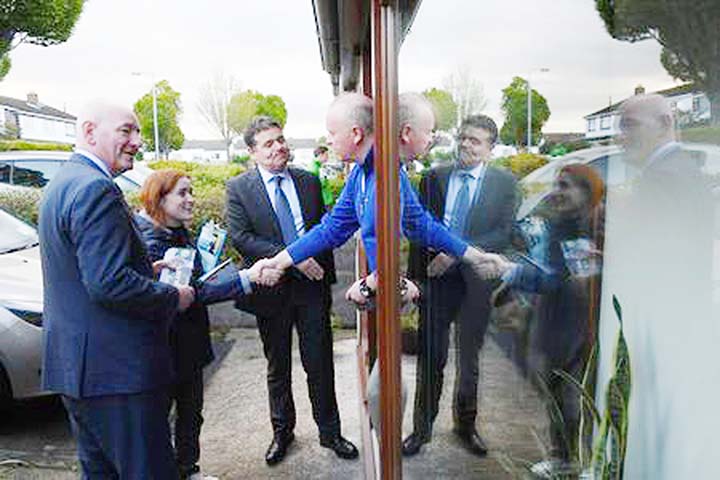
Reuters, Dublin :
When Britain voted to leave the European Union, few voters outside Northern Ireland thought about what it would mean for the British province.
Three years on, Northern Ireland is inching closer to holding a referendum of its own-on reunification with Ireland.
A united Ireland, and Northern Ireland’s withdrawal from the United Kingdom, remain distant prospects, and a unity referendum may not happen soon. But, as an unexpected consequence of Brexit, the political landscape is shifting.
The two largest parties in the Irish republic, Fine Gael and Fianna Fail, both of whom ultimately favor a united Ireland, have expanded their political networks north of the border to position themselves for a possible “unity vote”.
Fine Gael, Ireland’s governing party, has also taken the unusual step of selecting one-time Northern Ireland Deputy First Minister Mark Durkan as a candidate to run in the Dublin constituency in this week’s European elections.
“The unity debate has gained legs in the context of Brexit,” Durkan, a former leader of the Social Democratic and Labour Party (SDLP), one of Northern Ireland’s two main pro-unity parties, told Reuters while campaigning in the Irish capital.
In the 2016 Brexit referendum, nearly 56% of voters in Northern Ireland voted to stay in the EU but the province will leave when the rest as Britain departs-on a date that has not yet been set. Ireland, which won independence from Britain a century ago and joined the EU in 1973, will remain in the bloc as its most committed member, according to recent polling.
Opinion polls in Northern Ireland have for many years shown insufficient support for reunification, but politicians and political analysts point to a growing number of factors that could push public sentiment in the direction of reunification.
The first is the possibility that Brexit will lead to a “hard border” between Northern Ireland and Ireland, meaning the re-emergence of checks on goods and a potential a risk to two decades of delicate peace in the province-a prospect that alarms many people both north and south of the border.
Another is the economic and political situation. Recent business surveys suggest that despite record low unemployment, Northern Ireland’s economy is stalling, partly because of uncertainty over Brexit. The province’s devolved government, created under a power-sharing agreement in 1998, collapsed more than two years ago.
Demographic trends could also shift public opinion in favor of unity. Catholics, the traditional support base of Irish nationalist parties and unity, are on course to become the majority in Northern Ireland within a generation.
This would be important because of the terms of the 1998 Good Friday Agreement, which ended decades of sectarian violence over whether Northern Ireland should remain British or join the Irish Republic.
The agreement specifies that the British government “shall” order a referendum on whether Northern should remain part of the United Kingdom if it appears likely that a majority of those voting would seek to join a united Ireland.

